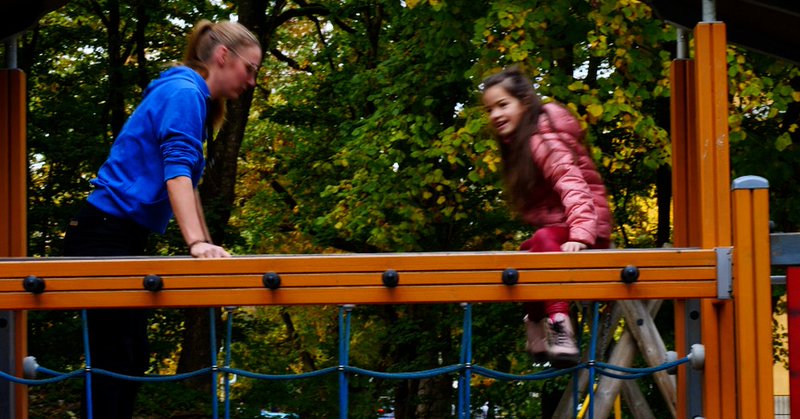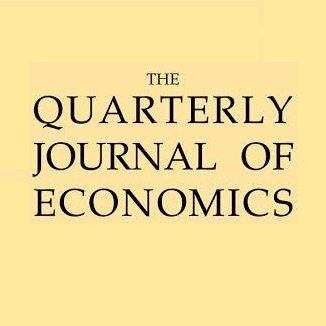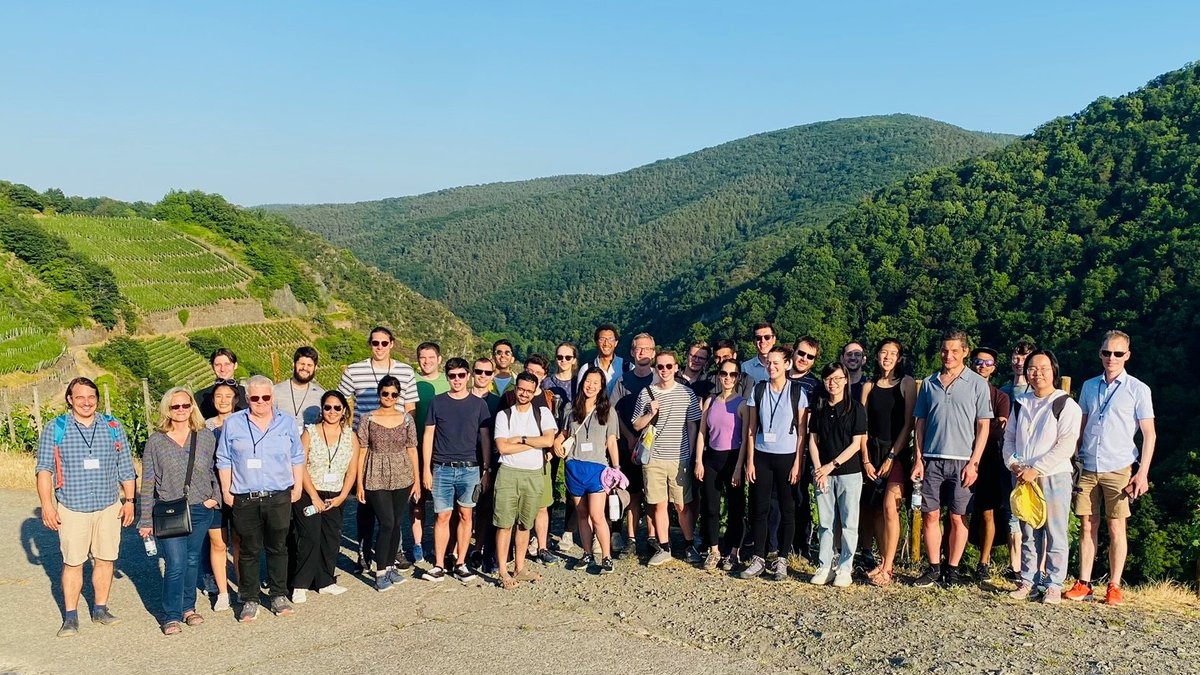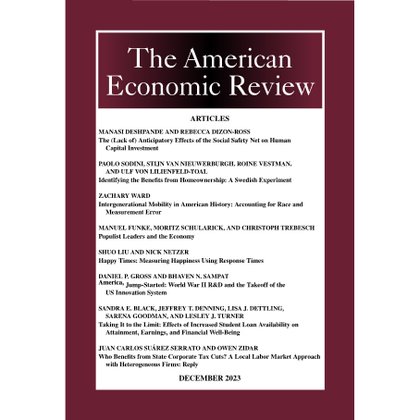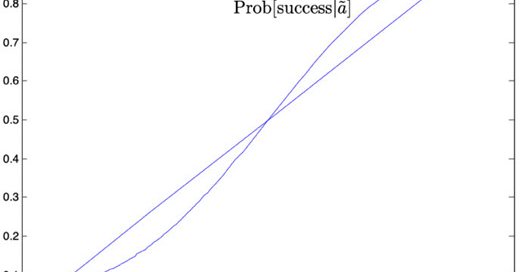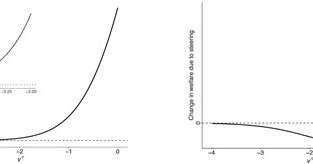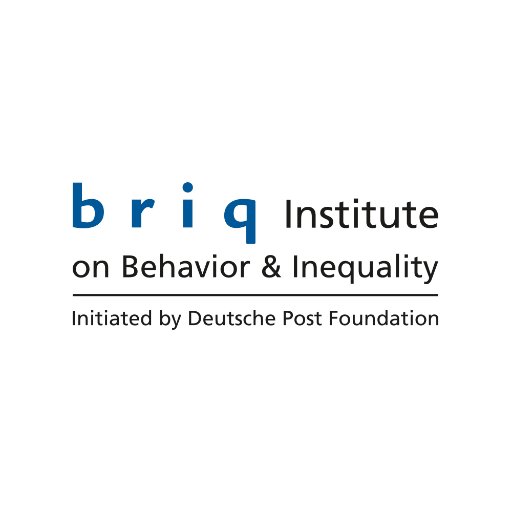
briq institute
@briq_institute
Followers
3K
Following
638
Media
120
Statuses
575
Advancing innovative thinking on the sources and consequences of inequality while pushing the frontiers of behavioral economics.
Bonn, Germany
Joined May 2016
Effective Jan 01, 2024, briq has merged with the IZA Institute of Labor Economics. While we will continue our mission as part of IZA, this X account will be retired. We express our gratitude for your outstanding support and invite you to follow @IZA_Bonn. Thank you and goodbye!.
0
0
0
Das Ehrenamt spielt im Schulalltag eine immer größere Rolle. Der BR berichtet heute ab 17:30 über die Ergebnisse unserer Langzeitstudie zum Mentorenprogramm @Balu_und_Du. #briqResearchAffiliate @FabianKosse (Uni Würzburg) fasst die Ergebnisse zusammen.
br.de
Schulweghelfer, Streitschlichter, Mentoren ... Das Ehrenamt spielt im Schulalltag eine immer größere Rolle. Gerade für Schüler, die sonst auf der Strecke bleiben würden. Wie Ehrenamtliche die Schulen...
0
1
3
What role does affirmative action play at elite institutions? A new study by Cecilia Machado, #briqPostdoctoralFellow Germán Reyes and Evan Riehl looks at the affirmative action policy of one of Brazil’s most selective and prestigious universities:
0
0
0
RT @ptr_andre: 📢 Early-Career Behavioral Economics Conference 2024 📢. Check out the call, help spread the word to your early-career colleag….
0
49
0
RT @ptr_andre: 🚨 New paper! 🚨.w/ @ph_schirmer @JoWohlfart. Stock markets revolve around return expectations, which traders form in light of….
0
41
0
RT @PingerPia: NEWS: I am excited and more than grateful to have been awarded an ERC Starting Grant for my project OPPORTUNITY! #ERCStG #OP….
0
10
0
Tomorrow, @grand_schemer will present recent work (joint with @MatsKoester and #briqResearchDirector Botond Kőszegi) on the trade-offs between accuracy, anxiety, desirability, and learning under motivated beliefs. What do people choose to believe who can believe what they choose?.
0
0
0
We are in the middle of the #briqVisitingPeriod2023. Many researchers have already arrived - even more to come. Welcome to everyone!. ➡️
0
0
3
Did the 19th/20th century state bans on first-cousin marriage boost the US economy? A new study by #briqPostdoctoralFellow @ArkdevGhosh et al. supports the hypothesis that tightly knit family structures may impede economic development:
Recently accepted by #QJE, “Economic Consequences of Kinship: Evidence from U.S. Bans on Cousin Marriage,” by Ghosh (@arkdevghosh), Hwang (@sam_hwang81), and Squires (@munirsquires):
0
1
4
Save the date: Marc Kaufmann's (@CEU) lecture on socially responsible consumers will take place on August 15. #ShortLectureSeries
1
1
3
An intense and inspiring #SSBE2023 week with amazing lecturers and highly motivated students comes to a close.🏁.But, of course, it wasn't all work and no play! Our participants also enjoyed a guided tour along the sunny Red Wine Trail, winding through the Ahr Valley vineyards.🌞
0
0
9
Florian Zimmermann also delivered an insightful review of the research frontier on the topic of beliefs and belief biases, including his own influential work, such as:
aeaweb.org
(February 2020) - A key question in the literature on motivated reasoning and self-deception is how motivated beliefs are sustained in the presence of feedback. In this paper, we explore dynamic...
0
0
1
Day 5 concludes #SSBE2023 with two lectures by Florian Zimmermann on belief formation. He highlighted the important role of motivated beliefs in a variety of domains, e.g. prosociality, the self and the political sphere.
1
0
11
In the second part of her lecture, @lise_vesterlund gave insights into her impactful and varied research findings, highlighting experiments on decisions to volunteer and to negotiate, as well as on work assignments.
0
0
1
In her lecture on the behavioral economics of gender, @lise_vesterlund showed how gender differences in social norms or beliefs can help explain labor market outcomes for men and women, e.g. the selection into competitive environments.
1
0
3
Day 4 at #SSBE2023: In his lecture on the economics of ego, George Loewenstein called for integrating the concept of self-esteem into economics as a fruitful area for future research. More on fragile self-esteem:
academic.oup.com
Abstract. We develop a model of fragile self-esteem—self-esteem that is vulnerable to objectively unjustified swings—and study its implications for choices
1
0
9
In the afternoon lecture, George Loewenstein aimed to strengthen the psychological basis of economic models. He offered intriguing insights into the economics of attention, a key production factor with profound effects on economic interactions. #SSBE2023
0
1
3
Botond Köszegi also demonstrated how the presence of both naïve and sophisticated consumers leads to "naiveté-based discrimination" & behavioral distortions in markets. His recent work with Paul Heidhues & Mats Köster on 'steering' fallible consumers:
academic.oup.com
Abstract. Online intermediaries with information about a consumer’s tendencies often ‘steer’ her toward products she is more likely to purchase. We analyse
1
0
3

